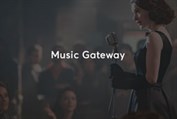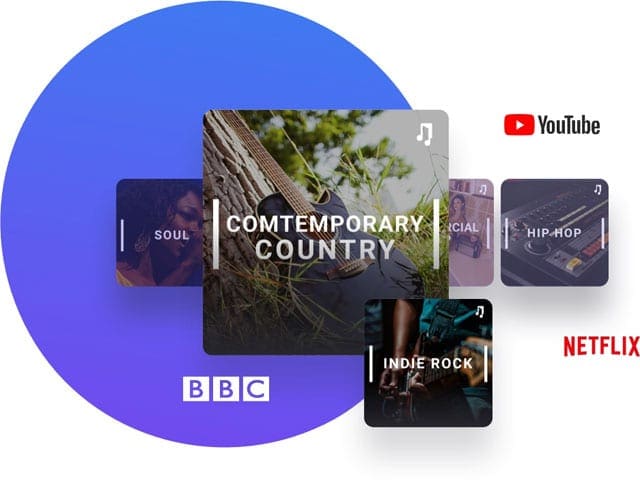How To Become A Successful Indie Band
Are you and your friends wanting to take your basement band rehearsals to the next level? There is no limit to where music can take a hard-working and committed recording group, with the right approach and talent the world can be your oyster. Recording and releasing music as part of the band can be both a blessing and a curse. You have to keep everyone happy, but you do have more people to share the weight of the responsibilities and provide inspiration.
If you think you and your band have the drive and passion to make a career out of recording and releasing music, or you’re looking to start a band, read on to find out more about a recording group’s musical journey…
Starting an Indie Band
Maybe you’ve all been friends since high school, or have met at university, a lot of groups are founded on already built friendships. This isn’t always the case though, and many successful groups have been formed from the love of the art and a level of creative understanding. If you’re looking for band members, one of the best things you can do is investigate your local music scene and find out who does what and who’s in which bands already. You can also post online on local or national forums and social media pages looking for band members.
When you’re starting a band, make sure you have good and open communication between all the members. There have been countless tales in the past of famous rock bands breaking up because of disagreements and unresolved disputes. Treat every member with respect and value their contribution to the music all the way throughout your careers. Discuss each of your own aspirations for the band and creative dreams, if someone wants to take the band in a direction that the others do not then you’re going to have a problem. Make sure you’re all on the same page.
A lot of people gravitate towards large cities like New York City, London, Manchester, LA, Paris & Berlin as it’s easier to meet and network with lots of good musicians.
Writing Music
This process can be where a good portion of disagreements originate between band members. People can be very protective over their creative work and not take well to criticism. There are many advantages to working as a band as multiple points of view can elevate a song and polish its edges. Compositionally it’s advantageous to write music as a band because you might not have to hire composers to contribute to the instrumentals unless there’s an element you feel you’re missing.
When you’re writing music, be sure you decide who owns what part of the compositional copyright. It’s pretty standard practice that bands will split the rights evenly between band members, although you don’t have to. If one person has contributed the lyrics and melody and the rest of the band add to it, the writer could ask for a higher portion of the copyright. It all depends on the dynamic and agreement you have as a band, but evenly split rights generally lead to less drama.
Producing Music
More members to chip into production costs can be a big advantage to emerging bands making music as it enables them to stay in the studio longer or put the money to use elsewhere. If one of you has a good grasp of production you can self produce your music, all lending a hand when needed. If you have the resources to have it produced, or co-produced, externally then it can add that extra shine to your sound, benefiting from the expertise and guidance of a professional producer and studio.
If you’re signed to a major label they will likely place you with an experienced producer who can turn your tracks into hit singles. Independents might connect you to a producer who’s more specialist or who they feel can really get to the heart of your music, rather than produce a sound that is more radio-friendly.
When looking for a producer look at their recording portfolio and work out what they can do for you and your music. Choose someone who will understand your creative vision and inspire you.
When you record a song or a debut album with a producer you must decide who owns what rights. If the compositions have been altered on the suggestion of the producer, then they could claim a proportion of the compositional rights as well as the master rights. If one of your band members has co-produced the record, then they could be entitled to share the master rights with the producer. If you’re on a major label the master rights will most likely belong to the record company. Whenever you’ve finished recording a piece of music, draw up an agreement of who owns what percentage of the compositional and master rights based on every individual’s contribution and get it in writing.
Publishing Music
This is the process of officially registering your copyright to a recorded piece of music and allowing others to exploit it in return for compensation. Music labels, majors and independents, usually act as the publishers or work with publishers to do this for artists, although it can be done independently as well.
To publish your music you’ll need to register with performing rights agencies like PRS for Music and MCPS in order to receive your due royalty payments. Publishing can be a lengthy process however due to the platforms through which we can now access music on a global scale. This has meant that musicians with global audiences must work a lot harder to collect their due royalties from PROs all over the world.
As an independent musician or group, you can sign publishing deals to employ someone else to do this administrative element and focus your time on your music. Some publishing deals simply handle the paperwork and collection side of publishing for a small portion of your publishing royalties, whereas others will take a larger cut but do more to promote your music and open up sync licensing opportunities. It comes down to how much of your publishing royalties you want to give away and how much of the promotional side you feel you can do yourselves. Publishing deals can last for single songs or albums or on yearly contracts. There are lots of deals and contracts out there but before you sign one you might consider having a lawyer look at it to make sure you won’t be licensing away all your royalties.
Music Distribution
Distribution is the process of getting your music to your listeners. In the digital age, you can opt for both physical distributions in the form of CDs and/or online retailers and streaming services. For many independent artists are smaller indie labels, online distribution is the avenue they usually choose its cheaper and easier than physical distribution.
Major labels usually release music both on physical CDs, sometimes vinyl, and online. They have vast resources and distribution mechanisms already in place to get your music everywhere. Indie labels might also print your music as well as distributing it online, but it depends on their size and scale. As an independent artist, you’ll have to work with a distribution company to get your music on all the key platforms. There are a number of online distribution companies that enable DIY artists to get their music online for fair prices who will also pay you your due revenue from these sources on a global scale. Being in a band once again means you can split the costs of distribution.
Music Marketing and Press Relations
You have to promote your music if you want anyone to listen to it. Marketing is through which you will create a brand identity for your band and your music, this includes your album artworks, personal styling, social media content, visual elements at shows and the way you carry yourselves in public view. Press is media coverage in print, online and on TV and through public conversations concerning your music.
Majors have huge marketing and press budgets to help their artists reach the highest levels of success, hiring top photographers and artists to work on their artwork and visual content, whilst also splashing out on advertising campaigns. Independent labels and DIY artists rely heavily on social media and the power of the internet to market their music, harnessing the power of grass-roots support. The internet has done wonders to help DIY bands compete with major label acts however a marketing campaign is only as effective as the campaign itself. There is a right and a wrong way to do something.
Marketing is an element you can take into your own hands, or you can hire music promotion and PR companies to help you out. Whatever your campaign size or approach, it should reflect who you are as a band and always be authentic. If one of you has a flair for social media then leave the marketing with them, it will create a clear online voice if only one of you has control. Delegating responsibilities like this between the band will help keep everything organised and running smoothly.
Gigs And Touring
As record sales are still falling and online streaming services continue to thrive, touring is going to be one of your main sources of revenue. Tours should be timed with releases and carefully mapped out and budgeted before you all jump in a bus and hit the road. Touring involves working with booking agents, promoters, tour managers, support crew and each other to increase ticket sales. Always think realistically about your potential turnout on a tour, you need to at least break even in terms of spend/revenue for it to be financially worthwhile.
Promoting your shows is going to be one of the most important elements of touring. The more people turn up the better it is for your band fund. Make sure you promote the shows in each town and talk to the venues about what they will do to get people to come to your show. Targeted, local advertisements on social media can be bought cheaply and go directly to your potential fans in that area.
Merchandise sold at shows is going to be a great source of revenue as it can be done cheaply but with high-profit margins. Make sure you order enough merch for the whole tour, you don’t want to run out halfway around the country. Any you don’t sell on a tour you could sell through an online store on your band’s website.
Getting Paid – Sales, Royalties, Syncs And Touring
As has been the trend for the last twenty years in the music industry, record sales are still falling. That’s not to say you won’t see a return from your records being out in the shops, but it’ll be small. Streaming and online radio are now where many choose to access and listen to music. You’ll still generate money through airplay and streams, it just won’t be a considerable amount unless you’re racking up good numbers.
Performance royalties are owed to artists for every time their music is played or broadcast for public consumption, whether that’s on the radio, in a bar, on Spotify or on TV. Performance royalties are paid to the owner of the compositional copyright and the publishing rights. Mechanical royalties are paid for the copying of your music onto CDs or when online platforms are used to play music. Any royalties generated through the performance or use of your music should be paid to you by your label or publisher, or your registered performing rights organisations.
Sync licensing is another way for bands to make money whilst also benefiting from free music promotion. A sync license is agreed between a recording group and a TV production company, filmmaker, advertising agency or video games publisher for the license to use your music alongside a piece of visual media. Sync deals are highly competitive placements and are usually negotiated between music publishers or labels and the music supervisor responsible for sourcing the music for the project. There is nothing stopping independent artists from contacting supervisors and submitting music for sync opportunities as well, it may just be a little harder to secure one.
Sync licenses are consent agreements obtained from all the rights-holders on a recording to use the music in a visual project. They usually involve payment of a one-time sync fee to the rights holders and can generate sync royalties for each time the track is played or ‘performed’ publically. For long-running adverts or popular TV shows, sync licenses can be a valuable source of income for bands whilst also opening up their music to new demographics.
As we’ve said, touring and live performances are generally how bands stay afloat these days. It can be exhausting, but it’s one of the most lucrative sources of income for acts across all levels of the industry.
Trade Unions
The Musicians Union is used by most musicians and bands to assist, campaign and support their causes. For bands looking for new members in their local area or musicians to help accompany them on a record, it can be a great resource as you can easily connect to other artists in your area.
Trade unions can support you if ever you’ve played a show and not been paid, you need legal advice about an issue your band is facing and campaign for governmental changes in legislation to help support musicians careers. There is an annual membership fee, but again as a band, it can split between members.
Career Advancement
Most bands start rehearsing in someone’s garage/basement, playing shows in local pubs and small venues but you can change all that with hard work and good music. Like with anything you have to start small. Your writing and releasing cycle will begin with writing, then recording, then marketing to release, going on tour and then starting all over again.
Successful and driven bands can go on to release record and record if they have a good team behind them, a talent for songwriting and a close relationship with their fans. You may start in your basement, but a committed band can go on to play the biggest arenas all over the world.
Successful & Famous Bands
The best-selling band of all time is, of course, The Beatles. They have sold over 800 million records worldwide and have been named the most influential band in music history. Their experimental albums meant they were always evolving and challenging the popular musical norms of the time. They released 13 albums in just seven years, their songwriting abilities knowing no bounds.
Each Beatle had successful solo careers following their breakup. Unfortunately, John Lennon and George Harrison are no longer alive, but Ringo Star and Paul McCartney are both still making and playing music.
If you’re a band looking for sync licensing opportunities, music promotion services or music jobs, see what Music Gateway can do to help further your musical career.
FAQ Section
Q1. What are indie pop bands?
Indie pop, also known as indie-pop or indiepop are terms that relate to a music genre and culture that combines guitar-based pop bands with being independent. Being in opposition to the style and tone of mainstream bubble gum pop music. The definition of indie pop has also been mean to describe bands from unrelated independent music scenes and cultural movements with a pop influence.
Q2. What makes a band indie?
The term indie is sometimes used to describe the indie genre, but feel this better describes whether the band is independent, indie for short and means that they are either unsigned or signed to an indie label (independent record label).
Some indie bands go on to being signed by Major Record Labels, losing their independent status. It’s also considered that to be a true indie band, you have to be in total control of your rights and business activities, self-releasing your records, gigs and tours.
Q3. What music is considered ‘indie music’?
Independent music (often shortened to indie music or indie) is music that is produced independently of any of the major commercial record labels such as Universal, Sony, Warners and BMG who are the 4th largest company in the music industry.
It also includes any subsidiary labels, for example, Warner owns Atlantic Records home of Ed Sheeran and Bruno Mars. Indie is a process of being autonomous and embracing the DIY (do-it-yourself) approach to recording, publishing and promoting music.
Q4. What is the indie genre?
Rock, Alternative Rock, Folk Rock, Post Punk, Indie Rock
Q5. What is the difference between alternative and indie?
Indie rock music and alternative rock are often used interchangeably. There are some key differences between the genres and the term “indie” was mainly aligned with British indie bands and their music, whereas the term alternative is more aligned with American indie bands. In addition, indie rock bands have fused to create several new genres and subgenres.
Q6. Famous Indie Bands
Here are just a few of the top most famous indie bands. The Killers, Oasis, Arctic Monkeys, The Strokes, The Smiths, Franz Ferdinand, Mumford & Sons, The Stone Roses, Blur, Arcade Fire, Radiohead, The Prodigy and The Kooks.
























